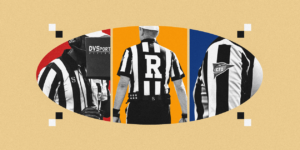The co-owner of GB News has lost a legal battle with the South African government over £34m of silver secretly salvaged from a second world war shipwreck.
Sir Paul Marshall, who is setting up a bid for the Daily Telegraphclaimed ownership of 2,364 silver bars his company recovered from the bottom of the Indian Ocean.
This claim was successfully challenged in the British High Court by the South African government, which said it was the rightful owner of the silver as the metal was purchased for the South African currency.
The precious metal was sold by the government of India during the Second World War, with the intention that it would be converted into coins for South Africa and Egypt. At the end of 1942, the 60 tons of silver were loaded onto the freighter SS Tilawa in Bombay (now Mumbai).
It sailed across the Indian Ocean to the port of Durban, but was sunk by torpedoes fired from a Japanese submarine near Seychelles. In addition to the 280 people who lost their lives, the ship’s cargo, valued at $43m (£34m) in 2020, was lost at sea.
There it remained for seven decades until the arrival of Argentum Exploration, a company majority owned by Marshall. The company, run by ex-racer Ross Hyett, has taken advantage of improvements in technology to recover cargo from shipwrecks previously considered unsalvageable.
Argentum is one of many businesses owned by Marshall, one of the UK’s most successful financiers, who uses his personal funds to fund media outlets including Unherd and GB News. The right-wing news channel made a loss of £42m last year – slightly more than the value of the salvaged silver – and announced redundancies.
The wreck of the SS Tilawa was found 2.5km under the sea and in 2017 Argentum secretly salvaged the silver for six months before sailing its spoils to Southampton. The company unloaded the silver into a warehouse and declared it to the official Receiver of Wreck, believing it to be legally owned by the British government, only to be surprised when South Africa claimed ownership.
Argentum later argued that even if South Africa was the rightful owner, it should be paid for the recovery of the silver. Under maritime law, it is possible to claim a fee for voluntary salvage, regardless of whether the owner of the property has agreed to the salvage operation.
But South Africa insisted it did not have to pay anything to Marshall and claimed the rules did not apply because the silver bars were being transported by a state for a non-commercial purpose.
The British High Court sided with South Africa on Wednesday, but noted that both sides reached a confidential settlement late last month, ahead of the ruling.
Jonathan Goulding, of law firm HFW, which advised the South African government, said the ruling was significant: “In short, the court certainly sent a message to those hoping to find and claim ownership of lost treasure that finders are not always keepers. .”

